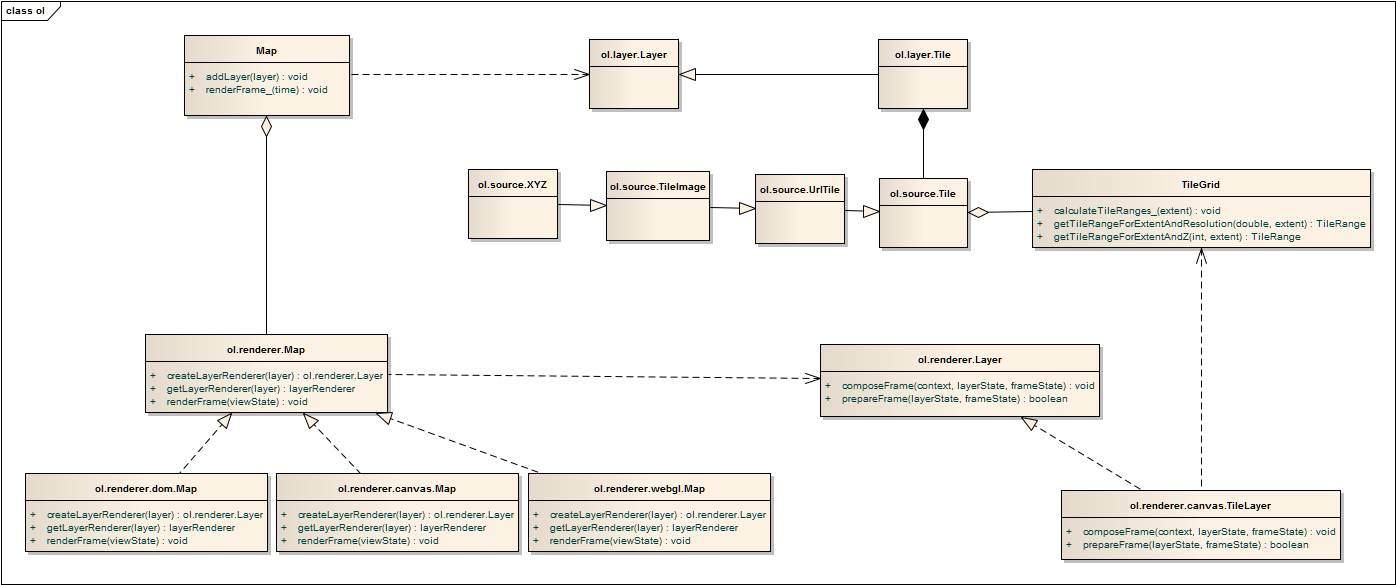划线、标线、贴线、删线竟然如此简单 -来自openlayers
如果你自己写过在地图上划线、标记、自动贴合、删除适量线条等这些功能,那么你就会喜欢上下面来自openlayers官方的代码:
<!DOCTYPE html>
<html>
<head>
<title>topolis integration</title>
<link rel="stylesheet" href="https://openlayers.org/en/v5.3.0/css/ol.css" type="text/css">
<!-- The line below is only needed for old environments like Internet Explorer and Android 4.x -->
<script src="https://cdn.polyfill.io/v2/polyfill.min.js?features=requestAnimationFrame,Element.prototype.classList,URL"></script>
<script src="https://unpkg.com/topolis@0.2.5/dist/topolis.js"></script>
<script src="https://code.jquery.com/jquery-3.1.1.min.js"></script>
<script src="https://cdnjs.cloudflare.com/ajax/libs/toastr.js/2.1.3/toastr.min.js"></script>
<link rel="stylesheet" href="https://cdnjs.cloudflare.com/ajax/libs/toastr.js/2.1.3/toastr.min.css">
</head>
<body>
<div id="map" class="map"></div>
<script>
import Feature from 'ol/Feature.js';
import Map from 'ol/Map.js';
import View from 'ol/View.js';
import {Point, LineString, Polygon} from 'ol/geom.js';
import {Draw, Snap} from 'ol/interaction.js';
import {Tile as TileLayer, Vector as VectorLayer} from 'ol/layer.js';
import {OSM, Vector as VectorSource} from 'ol/source.js';
import {Fill, Circle as CircleStyle, Stroke, Style, Text} from 'ol/style.js';
import MousePosition from 'ol/control/MousePosition.js';
var raster = new TileLayer({
source: new OSM()
});
var nodes = new VectorSource({wrapX: false});
var nodesLayer = new VectorLayer({
source: nodes,
style: function(f) {
var style = new Style({
image: new CircleStyle({
radius: 8,
fill: new Fill({color: 'rgba(255, 0, 0, 0.2)'}),
stroke: new Stroke({color: 'red', width: 1})
}),
text: new Text({
text: f.get('node').id.toString(),
fill: new Fill({color: 'red'}),
stroke: new Stroke({
color: 'white',
width: 3
})
})
});
return [style];
}
});
var edges = new VectorSource({wrapX: false});
var edgesLayer = new VectorLayer({
source: edges,
style: function(f) {
var style = new Style({
stroke: new Stroke({
color: 'blue',
width: 1
}),
text: new Text({
text: f.get('edge').id.toString(),
fill: new Fill({color: 'blue'}),
stroke: new Stroke({
color: 'white',
width: 2
})
})
});
return [style];
}
});
var faces = new VectorSource({wrapX: false});
var facesLayer = new VectorLayer({
source: faces,
style: function(f) {
var style = new Style({
stroke: new Stroke({
color: 'black',
width: 1
}),
fill: new Fill({
color: 'rgba(0, 255, 0, 0.2)'
}),
text: new Text({
font: 'bold 12px sans-serif',
text: f.get('face').id.toString(),
fill: new Fill({color: 'green'}),
stroke: new Stroke({
color: 'white',
width: 2
})
})
});
return [style];
}
});
var map = new Map({
layers: [raster, facesLayer, edgesLayer, nodesLayer],
target: 'map',
view: new View({
center: [-11000000, 4600000],
zoom: 16
})
});
var topo = topolis.createTopology();
topo.on('addnode', nodeToFeature);
topo.on('removenode', function(e) {
removeElementFeature(nodes, e);
});
topo.on('addedge', edgeToFeature);
topo.on('modedge', function(e) {
var feature = edges.getFeatureById(e.id);
feature.setGeometry(new LineString(e.coordinates));
});
topo.on('removeedge', function(e) {
removeElementFeature(edges, e);
});
topo.on('addface', faceToFeature);
topo.on('removeface', function(e) {
removeElementFeature(faces, e);
});
function removeElementFeature(source, element) {
var feature = source.getFeatureById(element.id);
source.removeFeature(feature);
}
function nodeToFeature(node) {
var feature = new Feature({
geometry: new Point(node.coordinate),
node: node
});
feature.setId(node.id);
nodes.addFeature(feature);
}
function edgeToFeature(edge) {
var feature = new Feature({
geometry: new LineString(edge.coordinates),
edge: edge
});
feature.setId(edge.id);
edges.addFeature(feature);
}
function faceToFeature(face) {
var coordinates = topo.getFaceGeometry(face);
var feature = new Feature({
geometry: new Polygon(coordinates),
face: face
});
feature.setId(face.id);
faces.addFeature(feature);
}
function createNode(topo, coord) {
var node;
var existingEdge = topo.getEdgeByPoint(coord, 5)[0];
if (existingEdge) {
node = topo.modEdgeSplit(existingEdge, coord);
} else {
node = topo.addIsoNode(coord);
}
return node;
}
function onDrawend(e) {
var edgeGeom = e.feature.getGeometry().getCoordinates();
var startCoord = edgeGeom[0];
var endCoord = edgeGeom[edgeGeom.length - 1];
var start, end;
try {
start = topo.getNodeByPoint(startCoord);
end = topo.getNodeByPoint(endCoord);
var edgesAtStart = topo.getEdgeByPoint(startCoord, 5);
var edgesAtEnd = topo.getEdgeByPoint(endCoord, 5);
var crossing = topo.getEdgesByLine(edgeGeom);
if (crossing.length === 1 && !start && !end && edgesAtStart.length === 0 && edgesAtEnd.length === 0) {
topo.remEdgeNewFace(crossing[0]);
start = crossing[0].start;
if (start.face) {
topo.removeIsoNode(start);
}
end = crossing[0].end;
if (end.face) {
topo.removeIsoNode(end);
}
return;
}
if (!start) {
start = createNode(topo, startCoord);
edgeGeom[0] = start.coordinate;
}
if (!end) {
end = createNode(topo, endCoord);
edgeGeom[edgeGeom.length - 1] = end.coordinate;
}
topo.addEdgeNewFaces(start, end, edgeGeom);
} catch (e) {
toastr.warning(e.toString());
}
}
var draw = new Draw({
type: 'LineString'
});
draw.on('drawend', onDrawend);
map.addInteraction(draw);
var snap = new Snap({
source: edges
});
map.addInteraction(snap);
map.addControl(new MousePosition());
</script>
</body>
</html>
转载自:https://blog.csdn.net/zw3413/article/details/85337447



